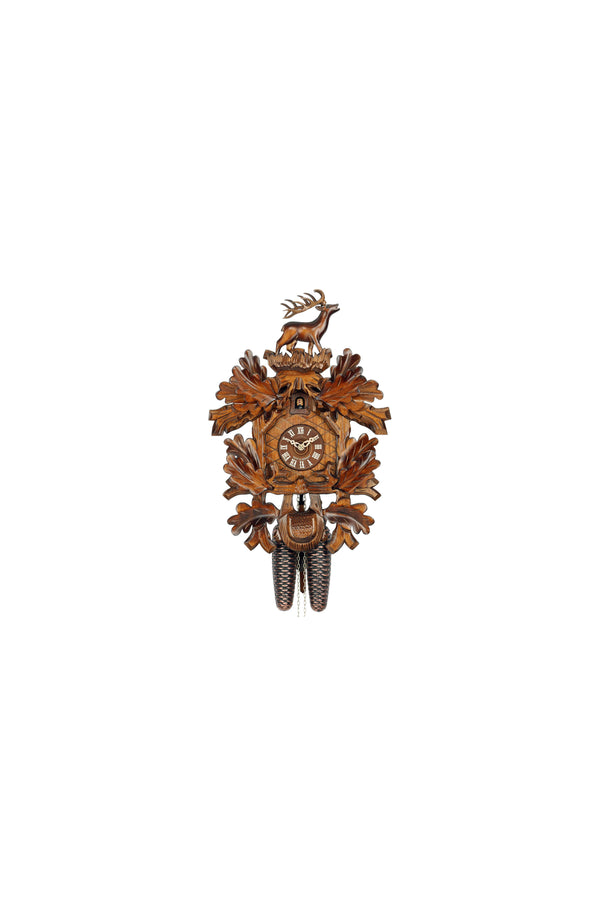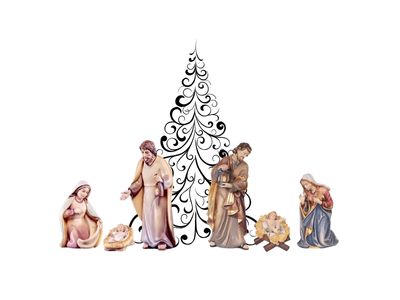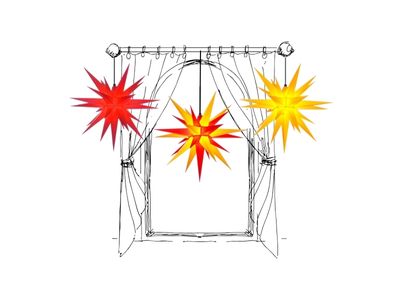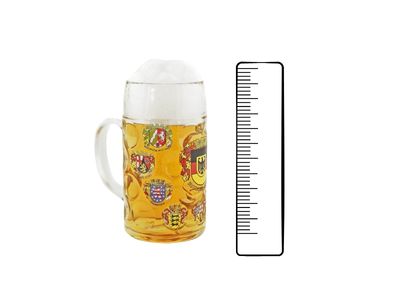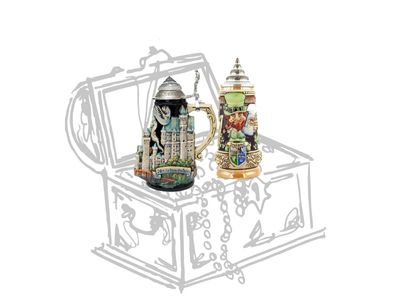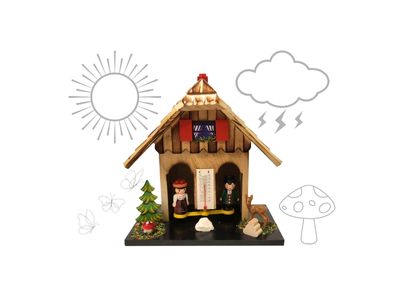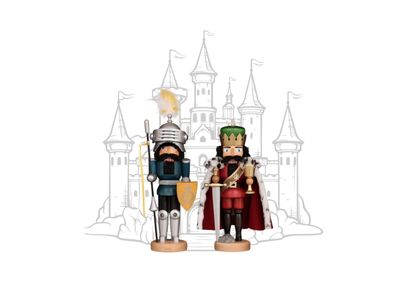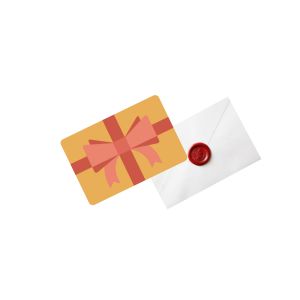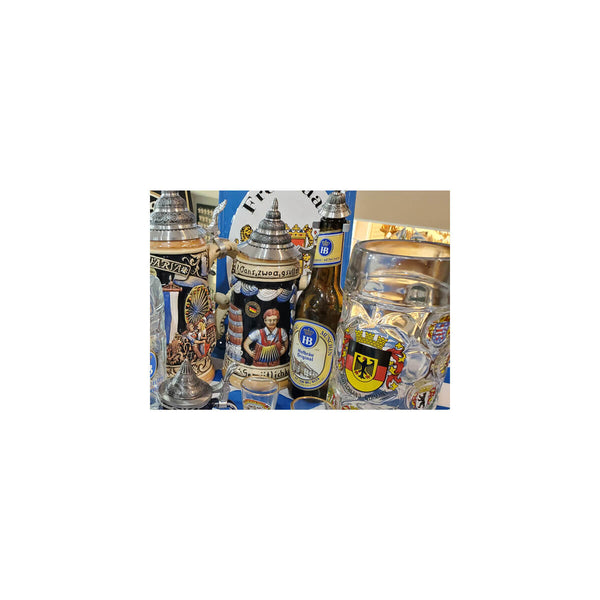
A brief history lesson about the Oktoberfest
Soon it will be that time again – time for Oktoberfest!
As we all remember, in both 2020 and 2021 the world’s biggest folk festival was cancelled due to Covid-19. For many, it was strange to imagine Munich without the famous "Prosit der Gemütlichkeit." Still, the Wiesn has bounced back, and we can raise a glass not only to its return but also to its rich history, fun facts, and unforgettable traditions.
Before we start with the history lesson, here is a very important tip. On our Website and in our Shop you can find everything you need for Your Oktoberfest. Simply stop by.
The Beginning
Many know that the Oktoberfest (or as Munich affectionately says "Die Wiesn") began as a celebration of the wedding of King Ludwig I and his wife, Princess Therese of Saxony-Hildburghausen in 1810. The whole town celebrated the wedding, which ended with a horse race. What many people do not know, however, is that the Agricultural Society saw the festivities as a practical opportunity to showcase peasant achievements and repeated it in the two following years. It was not until 1819 that the city of Munich took over the organization of the Oktoberfest. Who would have thought at that time that it would one day become the largest folk festival in the world!
Not just Food and Beer
The more than 100 rides that are now at the Oktoberfest, show that it is not just about food and beer. What started in 1818 with a very small carousel and two swings became a real amusement park, due to the electricity supply in 1886 - which also brought light to the beer tents and the Theresienwiese (The official name for the Oktoberfest area).
Oktoberfest in September?
In 1872, it was decided to bring the Oktoberfest forward to September, because of the cooler weather in October. Since then, the Oktoberfest traditionally begins on the Saturday after September 15 and ends on the first Sunday in October (except when October 1st or October 2nd falls on a Sunday - then the Oktoberfest is extended until October 3rd, the Day of German Unity). So, the confusing name is not a trick by the residents of Munich to keep the tourists away from the Oktoberfest, but just a rescheduling to be able to enjoy it more.
O'zapft is!
It is only since 1950 that the Wiesn begins with the famous keg tapping by the city’s mayor and the shout of “O'zapft is!” In that year, Mayor Thomas Wimmer tapped the first of many kegs at the Schottenhamel tent and established this tradition. At the same time, he set the unflattering record of needing 17 strokes for the first Oktoberfest beer tapping in history. (The record is only 2 strokes.) After the successful tapping, twelve traditional gunshots signal to the other festival tents at the Wiesn: the Oktoberfest is open, and the beer can now be poured! Even though the tents are open at 9 a.m. on the first Saturday, beer may only be served after the shots have been fired. Because of this reason, for those who can’t wait, the first Oktoberfest breakfast is served with the traditional coffee rather than with a first beer.
When Oktoberfest Was Cancelled in History
Oktoberfest is sacred in Bavaria, but over the past two centuries, there were several times when Munich had to do without its beloved Wiesn. The reasons were not minor inconveniences but wars, epidemics, and financial crises.
-
1813: Just four years after the first Wiesn, Bavaria was caught up in Napoleon’s battles and Oktoberfest had to be skipped.
-
1854 and 1873: Cholera epidemics swept through Munich, claiming thousands of lives, including Queen Mother Therese, the namesake of the Theresienwiese.
-
1866: The Austro-Prussian War forced Munich to cancel the festival.
-
1923: Hyperinflation left citizens struggling financially, making Oktoberfest impossible.
-
1914–1918 and 1939–1945: Both World Wars halted the festivities. After World War II, only small autumn festivals took place until 1949.
-
2020 and 2021: The Covid-19 pandemic caused the first cancellations in more than 70 years.
Each time, however, Oktoberfest returned and grew stronger, a symbol of the resilience and joy of Bavarian tradition.
Historical Wiesn
In 1960, the last horse race took place at the Oktoberfest, but it returned in 2010 for the 200th anniversary. The organizers and participants were dressed in historical clothing and befitting the theme, a "Historical Wiesn" was held in the Southern part of the Theresienwiese.
A Tradition That Endures
Whether in the past or today, one thing has always remained the same: when drinking beer from the Masskrug (large beer mug) at Oktoberfest, you have to say "Prost."
From royal weddings and horse races to modern beer tents and amusement rides, the Wiesn has endured wars, epidemics, and global crises. Each time it has returned, stronger than before. Oktoberfest is more than a festival; it is a celebration of Bavarian spirit, tradition, and joy.
So, the next time you raise your glass, remember the long history behind this event. And if you would like to bring a touch of the Wiesn to your own home, you will find plenty of Bavarian treasures in our shop. O’zapft is!


